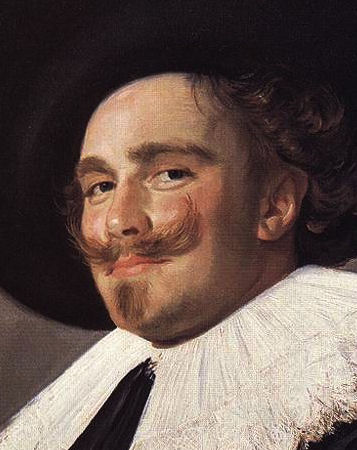Despite Hawkins’ tender age, Youths Behaviour became a best seller, going through numerous print runs and at least 12 editions over the next three decades. Much of its advice was not original but was translated and adapted by Hawkins from earlier works, such as Desiderius Erasmus’ De Civilitate Morum Puerilium.
Topics covered by Hawkins included personal conduct, bearing, manners and methods of speaking. There was also a list of ‘dos and don’ts’ when dining out. When at the house of another, Hawkins cautions against eating too much – and warns not to sniff the fare:
“Take not thy repast like a glutton… Eat not with cheeks full and with full mouth… Smell not to thy meat, and if thou do hold thy nose to it, set it not afterwards before another [diner]…”
He also warns against spreading thy germs by double-dipping:
“If thou soakest thy bread or meat in the sauce, soak it not again after thou hast bitten it. Dip therein at each time a reasonable morsel which may be eaten at one mouthful.”
Hawkins also gave advice on conversation. He suggested respecting the personal space of others, lest you drench them with spit:
“Neither shake thy head, feet or legs. Roll not thine eyes. Lift not one of thine eyebrows higher than thine other. Wry not thy mouth. Take heed that thy spittle [doth] not bedew his face with whom thou speakest. To that end, approach not too nigh him.”
On reaching adulthood, Francis Hawkins joined the Jesuits. He studied theology and, according to some sources, medicine. Hawkins was later responsible for training novices in Scotland and on the continent. He died in Liege, Belgium in 1681.
Source: Francis Hawkins, Youths Behaviour, or Decency in Conversation amongst Men, 1641. Content on this page is © Alpha History 2019-23. Content may not be republished without our express permission. For more information please refer to our Terms of Use or contact Alpha History.

